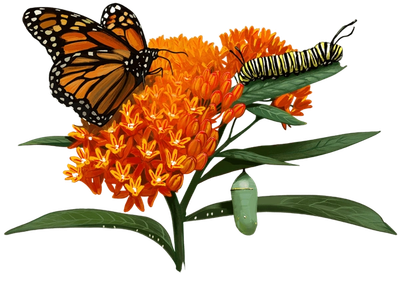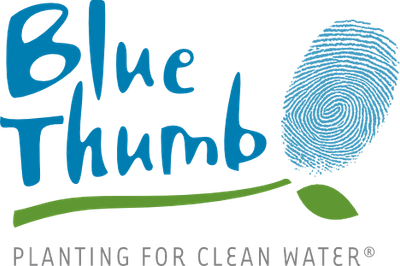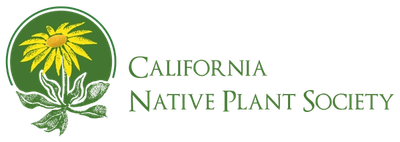Impact

What good can native gardens do?
gardens

Many of My Home Park gardens sold contain species of milkweed—the sole host plant for endangered monarch butterflies.

Help Your Local Environment

Support a Healthy Ecosystem
Native plants are supremely well adapted to your local climate, soil conditions, and wildlife. By providing essential food and habitat for local wildlife, they form part of the bedrock on which a healthy ecosystem stands.
Reduce your Water Consumption
By being well-adapted to their environment, native plants require significantly less water than non-native species, including lawns. This helps homeowners reduce their water usage and maintain a lush landscape with minimal irrigation.
Support Healthy Watersheds
Many native plants have deep root systems that help in filtering rainwater, reducing runoff and erosion, and preventing pollutants from reaching waterways. In this way, they play a critical role in maintaining healthy and resilient watersheds.
Reduce use of Harmful Chemicals
Native plants typically do not require fertilizers or pesticides to thrive, reducing the need for these harmful chemicals that can leach into groundwater and negatively impact surrounding ecosystems.
Improve Climate Resilience
Most native plants are resilient to climate extremes, such as droughts and floods, helping your yard adapt to changing climate conditions while mitigating the impacts of extreme weather events on your local environment.
Extended Impact
In addition to the many amazing things native plants can do in your own yard, My Home Park is proud to act in direct support of the following efforts:
My Home Park is a proud supporter of Pollinator Partnership, joining forces to protect pollinators and promote biodiversity. With every purchase of our Habitat Hero kits, based entirely on the pollinator garden recipe cards developed by the North American Pollinator Protection Habitat Task Force, you’re directly contributing to our shared mission of creating vibrant habitats for bees, butterflies, and other essential wildlife. Together, we’re making a tangible difference—one garden at a time.

My Home Park is proud to support Wild Ones, sharing their mission to promote environmentally friendly landscaping with native plants. From promoting the use of native plants to facilitating seasonal chapter sales, we work with Wild Ones to empower gardeners to make a meaningful impact on their local ecosystems and environment.

The Xerces Society is a leading nonprofit organization that works to protect wildlife and their habitats through the conservation of invertebrates like bees, butterflies, and other pollinators. Their site features tons of helpful resources for how to transform your yard into a haven for beneficial insects and other wildlife.

My Home Park is proud to be an official partner of Blue Thumb. Blue Thumb is an organization dedicated to promoting native plants, rain gardens, and other environmentally friendly landscaping practices. Their goals include empowering individuals to create and maintain sustainable gardens that support local ecosystems and wildlife while stabilizing and cleaning the water table on which our natural spaces rely.

The California Native Plant Society (CNPS) is one of our country's foremost organizations for the understanding and conservation of native plants. Their mission is to protect California’s native plants and natural habitats through science, education, stewardship, gardening, and advocacy. At present we feature CNPS-approved collections for the Bay Area, greater Los Angeles, and greater San Diego regions and are featured in their Bay Area Planner tool.

The UN Sustainable Development Goals are a set of 17 global goals to end poverty, protect the planet, and ensure prosperity for all people by 2030. Native plants allow for the realization of three of those goals.
6 - Clean Water and Sanitation
13 - Climate Action
15 - Life on land
Our impact metrics stand on the shoulders of heaps of careful research efforts studying the effects of native plants on pollinator and ecosystems health.
Below are just a handful of some of the most informative references for this work. If you would like to learn more, please reach out to wyatt@myhomepark.com
- Palmersheim et al. 2022 - “If You Grow It They Will Come” in Horticulture
- Rowe et al. 2020 - “Flower traits associated with the visitation patterns of bees” in Oecologia
- Ballard et al. 2013 - “Arthropod Communities on Native and Nonnative Early Successional Plants” in Community and Ecosystem Ecology
- Burghardt et al. 2009 - “Impact of Native Plants on Bird and Butterfly Biodiversity in Suburban Landscapes” in Conservation Biology
- Hicks et al. 2016 - "Food for Pollinators: Quantifying the Nectar and Pollen Resources of Urban Flower Meadows" in PLoS ONE
- Tew et al. 2021 "Quantifying nectar production by flowering plants in urban and rural landscapes" in Journal of Ecology
- Environmental Protection Agency - “Greenacres: Landscaping with Native Plants”
Let's Get Growing!
Shop Gardens